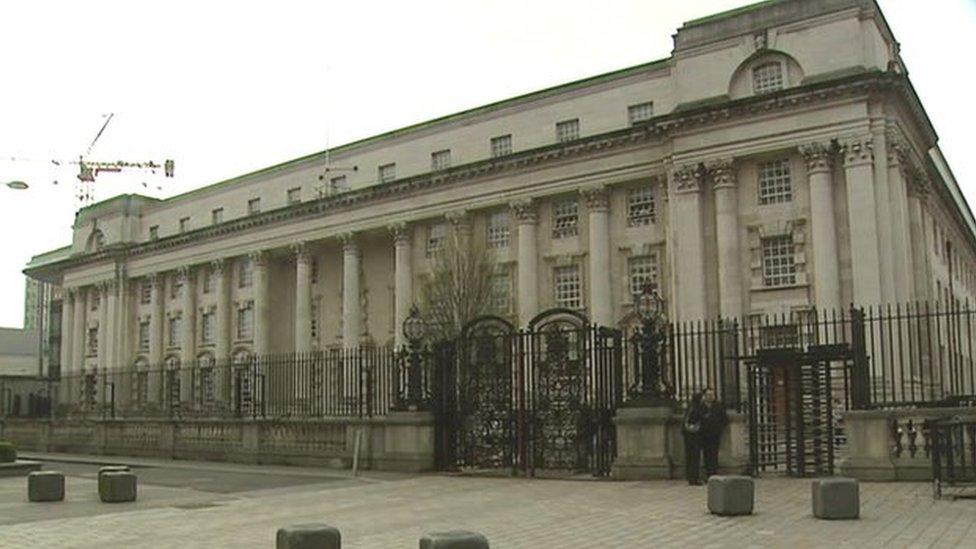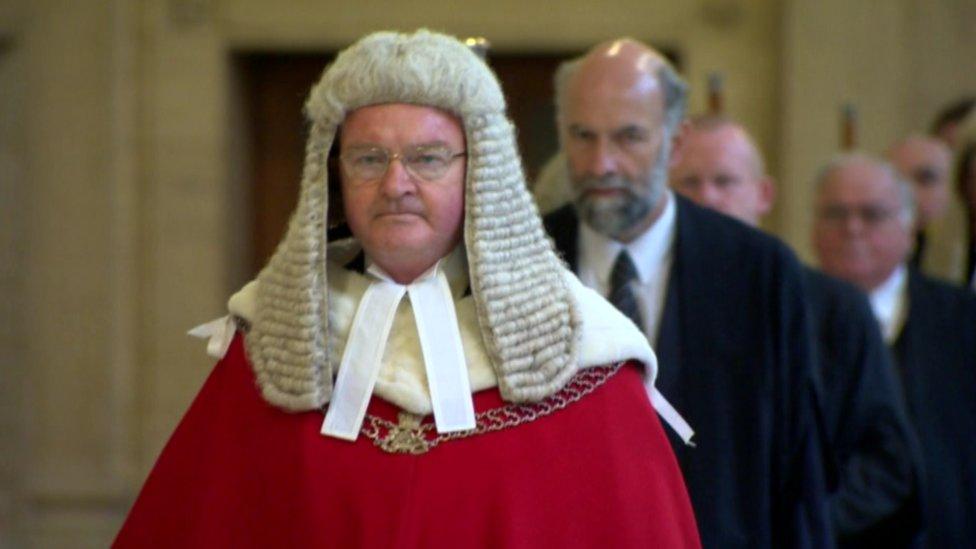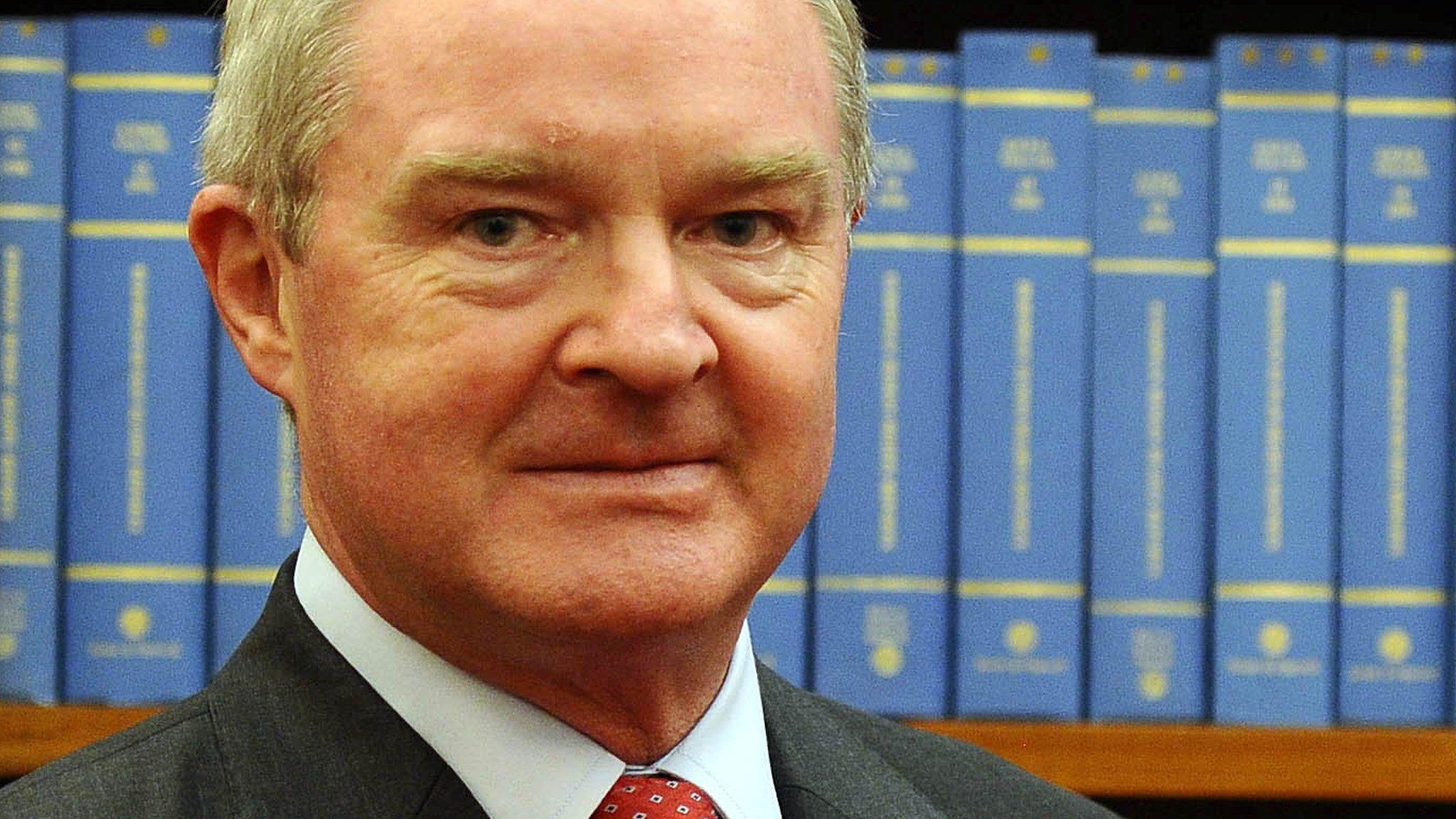The Troubles: Judge begins review of inquests
- Published

The most complex and controversial cases are likely to be heard by a High Court judge
A major review of inquests into some of the most controversial killings during the Troubles got under way on Monday.
There are 56 cases involving 97 deaths.
They include killings by police officers and soldiers, and others where there are allegations of state collusion.
As the review got under way in Belfast, the time taken by police to security-vet and disclose classified case files was repeatedly highlighted as an obstacle in the way of progress.
Twenty-two of the cases are more than 40 years old.
Lord Justice Weir, the presiding judge of the Coroners' Service, is spending the next two weeks conducting preliminary hearings to assess the state of readiness of each case.
Families of those who were killed and their legal teams have been asked to inform the court of the issues which are outstanding in each of the cases.
The stalled inquests into the Army shootings of 10 people in Ballymurphy, west Belfast, in 1971, and of five more civilians in nearby Springhill a year later, were examined on the opening day in Laganside Courts.
The cases focusing on nine deaths linked to the Royal Ulster Constabulary's (RUC) alleged "shoot to kill" policy in the 1980s were also assessed.
A barrister for families of two INLA members shot dead by the RUC in 1982 - Seamus Grew and Roddy Carroll - criticised police after they said disclosure could not be completed ahead of a proposed September 2017 inquest date.
A Police Service of Northern Ireland (PSNI) representative told the court at least another year would be required.
The barrister for the Grew and Carroll families accused the police of failing to honour a series of similar disclosure commitments since the cases were re-opened in 2007.
"Obviously there is the suspicion within the families that the PSNI have been dragging their heels over disclosure in order to protect the RUC," he said.
"They are fighting a rearguard action on behalf of the RUC, which they have done successfully to date."
Ahead of the review, a senior police officer said the disclosure delays were due to the huge pressures being placed upon the PSNI's Legacy Support Unit (LSU).
Dep Ch Const Drew Harris said attempting to run the 56 inquests at the same time, rather than sequencing them in order, resulted in the LSU continually jumping from one case to the other.
When the review is completed, a coroner will be appointed to hear inquests identified as ready to proceed.
In the others, relevant parties will be instructed to provide any outstanding material needed for an inquest to take place.
Some of the hearings are expected to take place later this year.
The most complex and controversial ones are likely to be heard by a High Court judge, while others will be heard by a County Court judge.

The review was announced by the Lord Chief Justice Sir Declan Morgan in October, a month before he was appointed president of the Coroners' Courts
Justice Minister David Ford last year authorised the Northern Ireland Courts and Tribunals Service to recruit "investigative support" for coroners dealing with the legacy inquests.
The review was announced by Lord Chief Justice Sir Declan Morgan in October, a month before he was appointed president of the Coroners' Courts.
Sir Declan said he wanted to assure the families of those who were killed that he was "fully committed to doing all that I can, within my sphere of influence and with the resources at my disposal, to ensure that justice is delivered".
But he also warned that it could be "many years" before most of the cases could be dealt with.
Only nine legacy cases have been disposed of during the past five years, and 13 cases in total in the past 10 years.
In November 2014, Sir Declan warned that inquests into deaths involving alleged state collusion and cover-up could go on until 2040 unless the coronial inquests system was changed.
- Published22 October 2015

- Published7 September 2015

- Published17 November 2014
